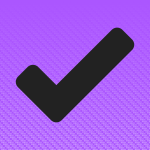As I write this to you, it’s about 5am and I realise I’m not in the mood to listen to any music. More often, though, if I’m here working away on my own and most especially when I have to really concentrate on the job, I will be playing music – and now I think that means I will be playing Apple Music.
Certainly for the next three months while it’s free, anyway.
Apple Music is like Spotify, Pandora, Rdio and many other services: you can listen to just about any music you like, just about whenever you like. Streaming music should be a familiar concept to me because that’s surely what radio has always been yet somehow I find it hard to get used to the idea. I’m so used to buying music, whether that is on vinyl, CD or download, there is the choosing and the buying and the playing.
Now there’s really just the playing as you don’t buy an album per se and I think you don’t choose in quite the same way. You explore, you sample, you don’t think about whether to invest some cash in this artist or that album.
I’ve liked the idea enough that I got a free Spotify account to try it all out and for over a year I’ve been playing it a lot in the car. Only, Spotify defaults to trying to recommend music to you and I always disliked or even loathed its choices. They made me feel very old and I don’t need any help feeling very old.
Spotify stops recommending stuff if you create a big enough playlist of favourite choices. I created such a playlist: 50 or so tracks that I like a lot. Only, I’ve ended up playing just those 50 over and over. I’m not unhappy: sometimes it’s perfect, sometimes it’s not.
It’s not as if I play the same 50 in the same order: unless you pay for a Spotify account, you can only play things on shuffle. It did just feel that some days Spotify got my mood exactly right and other days it didn’t.
You also get ads on Spotify every three songs or so. I got very used to those and, I don’t know, maybe I got close to paying for an account. That would remove the ads, that would allow me to play the song I wanted when I wanted, it would let me play an album in sequence.
I’ll never know how close I came, not now. For if I do end up paying for a streaming music service, it will not be Spotify. Not any more. It will be Apple Music.
I’m just trying to define why. Writing for MacNN.com about it, I concluded that I and we like it a lot:
We’d say love, but come on, the paint’s still wet, let’s take this affair a little slow for a time: we’ve got three months of dating before we have to make a commitment.
Hands On: Apple Music (iOS, OS X, Windows) – William Gallagher, MacNN (30 June 2015)
Read the full piece for more specifics about how it works and what’s good but after a night’s reflection, I think it comes down to two things that will help me while I work.
I think.
There’s the way I could just leave it running playing fairly random tracks but generally ones I like or am going to like: you give it some nudges about what you’re into as you set it up and it seems to do rather well with that information. That’s good.
But there is no question: the ability to just say aloud “Hey, Siri, play ‘Life is a Celebration’ by the Kids from Fame” and have it do that, that is startlingly great. Siri doesn’t work on Macs, which is going to be an issue as that’s where I spend most of my day, but using it via my iPhone and iPad for one day, I’ve become addicted to this feature.
They used to do this on Star Trek: “Computer, play some Bix Beiderbecke”. And it’s here.
My iMac returns home later today from having a repair done: when it’s here and I’ve updated iTunes, I’m going to see if I can use Siri to control it via my Apple Watch. My entire working day may change if it works.
NOTE: To play Apple Music, you need iTunes on your Mac or Windows PC, or an iPhone or iPad. Android stuff coming later.
